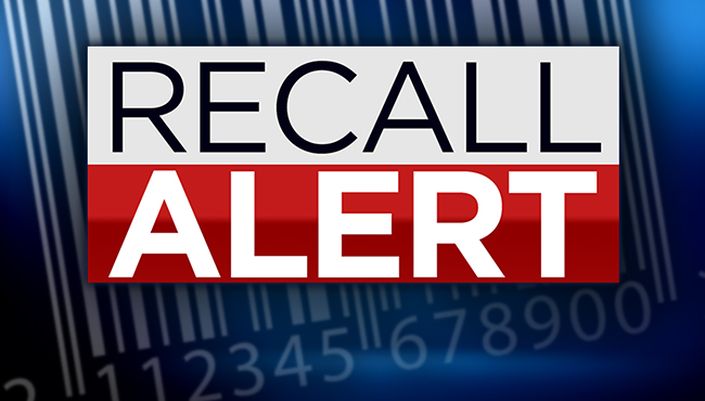Course Description
Upon completion of this session, you will learn the proper way to set up for a Regulatory Inspection, ensuring the inspection flows smoothly throughout the duration, and the proper way to speak to inspectors while they are performing the audit.
The purpose of the Regulatory inspection is an activity that should demonstrate that your company is operating according to the proper CFR requirements and maintaining a state of compliance. The key to a successful audit is being able to communicate how your quality systems assure this state of control.
Many times, the arrival of a Regulatory Investigator is a daunting experience for some. This seminar, you will learn how to properly alert key members that an investigator has arrived, the proper protocol for setting up the Inspection room and any associated “war” rooms that will support the inspection, and how to manage requests from the investigators in a timely and accurate manner. This preparation minimizes stress and disorder during the inspections.
Working in a highly regulated industry, we know our firms need to be “inspection-ready” at all times. This is not only to maintain a good rapport with the Regulators, but also as a commitment to quality for our customers, the patients who use our products.
Regulatory inspections should be a time to demonstrate the high level of compliance your firm has to the regulations, and to customer safety and quality. The purpose of a regulatory inspection is to ensure that your facility is in compliance with FDA rules and regulations. Investigators want to know that product was manufactured appropriately and that the current Good Manufacturing Practices are up to FDA standard. An inspection can be very intimidating to all involved, but it is vital if you want an inspection that results in a satisfactory report.
The inspection management plan should provide for, Response to the arrival of the investigators, Guidance of the inspectors’ activities, Procedure for working with the investigators, and Documentation of the inspection. The management plan or SOP should spell out all of the procedures that you will follow during an investigation. Personnel training is one key variable that should be looked at prior to any inspection. Educate personnel about the inspection process so they can be prepared. Train individuals to interface with FDA investigators. Verify that training has been provided for the personnel on their current job functions, and that supporting records are on file. The goal is to minimize the opportunity for incorrect answers provided to the inspectors, or providing too much information. Have a list of what to do and what not to do when speaking to the inspectors as well.
Why Should You Attend
You need not dread an FDA inspection if you are adequately prepared. FDA inspections have revealed some trends in recent years. The agency is taking a tougher stand on Quality Systems and using a risk-based approach. Inspectors usually review at least two (2) systems in depth. QA is their number one concern in recent years. They may also look at another system, such as facilities and equipment, materials, production, packaging and labeling or laboratory controls.
FDA does not expect your facility to be perfect. They expect all companies to have some issues. What they really want to see is how you address the problems. The FDA tends to view companies that control these issues to have a high standard of quality. This seminar will help you use the FDA inspection as a learning tool, not as a negative or adversarial experience.
Agenda
DAY 01(10:00AM to 02:30 PM)
FDA Inspections 101
- Unannounced FDA visits – how to prepare and react
- Preparing for FDA audits / PAI preparation – what training should look like for key players
- Basic concepts that should be employed by everyone regulated by the FDA – review of quarterly quality topics to keep current
Company Preparedness
- How a company can prepare for situations like this – training of SMEs and beyond
- How a company can balance the need to prepare for a potential FDA investigation or enforcement action and still run a profitable business
DAY 02(10:00 AM to 02:30 PM )
Observations and Lessons Learned
- How should a company respond to 483 observations or a warning letter – deadlines, tracking, and closures
- Lesson learned – reviews of the observations and overall inspection experience
Real Life Situations
- Case Scenarios – review of real-life scenarios that you could encounter during inspections
Learning Objectives
Upon completion of this session, attendees will:
- Learn Pre-planning and preparation activities
- Know What to do when the investigator arrives
- Know What documents to have ready and on hand
- Develop Assignments and responsibilities for the inspection
- Be Aware of Inspection Do's and Don'ts
Who Will Benefit
- Quality Control Personnel & Management
- Manufacturing Personnel & Management
- Senior Management
- Regulatory Affairs Personnel & Management
- Quality Assurance Personnel & Management

Danielle DeLucy
Principal/Owner, ASA Training & Quality Consulting, LLC
Gouldsboro, Pennsylvania
Danielle DeLucy, MS, is owner of ASA Training and Consulting, LLC which provides Pharmaceutical and Biologics based companies with training and quality systems assistance in order to meet Regulatory compliance. Prior to this role, Danielle has been in the industry for 15 years serving in numerous Quality Management Roles, such as the Director of Product Quality, the oversight of Sterility Assurance practices and provided QA oversight of numerous filling and packaging operations. Danielle began her QA career as a Quality Control Pharmaceutical Microbiologist at a contract laboratory where she performed various tests for their clients. In the years after, she has held positions in the Quality management arena while increasing her responsibility.
Our Participants Testimonial
The presentation by Carolyn Troiana today was fantastic, both I and the QA Manager (Aaron Neighbour) loved it and had extensive conversation afterward about it. ( FDA Compliance and Mobile Applications Webinar )
Robert Friedland ( IT Manager) NUTEK BRAVO, LLC.
Thank you for providing the information in such detail. It was helpful to gain the perspective of somebody that has implemented these regulations in a working lab. Virtual Seminar on ( Training on Life cycle Management of Analytical Methods and Procedures - according to new FDA and USP guidelines )
Tracey Kessler ( Director of R&D) CEL-SCI Corporation
I felt the seminar was very helpful and provided good insight for DataIntegrity and what the FDA is looking for per the regulations. ( Current Regulatory Thinking on Data Integrity 2 Days Virtual Seminar )
Margaret A. Clifton ( Manager, Quality Systems) CSL Plasma
The presenters subject matter knowledge is extensive which enables information to be shared in detail. (Training Attended on Risk Based Verification and Validation Planning to Meed US FDA and ISO 13485 Requirements )
Stuart Chisholm (Sr. Principal Device Engineer) Teva Pharmaceuticals
Top Featured FDA Virtual Trainings Online
About World Compliance Seminars (WCS)
World Compliance Seminars (WCS) is one stop solution for all your pharmaceutical, biotechnology and medical device certification program needs. The pharmaceutical and medical device training requirements are set forth by the FDA (Food and Drug Administration) and other major regulatory bodies like NIH, EMA, as well as numerous European based national regulatory bodies.
These requirements are important to the training of pharmaceutical reps who are responsible for the education, professional development, and on-the-job training. The training is broken down into different sections to cover a wide variety of topics, including pharmaceutical formulation, pharmaceutical transfer processes , GLP, GMP, Clinical Compliance, Process Validation, Global Regulatory Affairs, Document Management,GMP (Good manufacturing practice) QSR and CMC and many more.
The pharmaceutical and medical device requirements that the FDA has set forth are designed to protect the public's health and safety. Pharmaceutical reps must adhere to all of the regulations and education courses provided by the FDA in order to be considered one of the best in their field. They also must complete ongoing educational opportunities and maintenance programs in order to maintain relevance and career enhancement.






